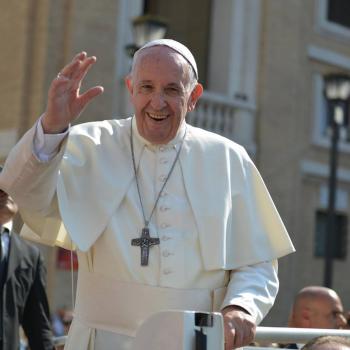Editors' Note: This article is part of the Public Square 2014 Summer Series: Conversations on Religious Trends. Read other perspectives from the Mormon community here.
Sharon Eubank's very thoughtful and powerful "This is a Woman's Church" was a highlight of the recent FAIR conference in Provo. I joined enthusiastically in the rare standing ovation given to Sister Eubank, Director of LDS Charities. She provided an appreciation of LDS doctrine on womanhood that was deeply grounded in accepted doctrine and at the same time distilled from devout personal experience and reflection. She also commented insightfully, faithfully and moderately on how our practices (regrettably, if inevitably) fall short of the fullness of our doctrine.
Sister Eubank showed that our eternal individuality is shaped and defined by the roles by which we relate to other beings. The most fundamental of these roles is grounded in sexual differentiation (or as she says, echoing the decorous language of the Family Proclamation, "gender"). Male/Female roles and identities are thus essential to our eternal destiny as well as to the meaning of our mortal existence.
The woman's role, the "divine feminine," is particularly defined by binding, connecting, and bridging. Eubank developed a wonderful and expansive vision of feminine domesticity through a fresh and very lovely reading of the familiar D&C 88:19. To organize ourselves into a "house of order" involves women's special stewardship, since this house must be understood not only as a home or even as a temple, but more profoundly as a family-grounded community and a heritage of loving order, as in "the house of David." Women are essential co-founders of the community of "houses" of a godly civilization.
Though she is single and childless (at age fifty, as she reported), Sharon Eubank stakes a full claim to the feminine title of "mother," just as Eve was pronounced "the mother of all living" before she had actually given birth. An eternal woman is inherently a wife and mother, and a "sealed divine pair" is the highest expression of religious devotion. One can only second Sharon Eubank's joyful exclamation: "This is incredibly powerful."
In the light of this rich understanding of eternal womanhood, Sister Eubank emphatically rejects the secular world's promiscuous definition of freedom. She also fully appreciates the blessing it is to women to have a Church that teaches men to honor the marital covenant and that condemns all forms of abuse and eschews any double standard of sexual morality. How much better our world would be without pornography, adultery, and abuse! It was such considerations as these that led an LDS sister in Ghana to exclaim: "This is a woman's church!" Thus the title of Eubank's remarks.
Turning next to a consideration of actual Mormon "practice," Sharon Eubank observed that our "political and traditional cultural practices" do not always measure up to our doctrine. And this shortfall is reflected in the limitation of our language: we lack the vocabulary and the "imagination" to apply the deep insights implicit in our theology. Thus we have a good word for the woman who shares in presiding over a temple ("matron"), but no word to convey the responsibilities of a mission president's wife. In order to render the Restored Gospel's powerful vision of womanhood fully articulate, to make it fully "visible" to the public, Eubank argued, we need to exercise our imaginations and enrich our vocabulary, taking encouragement from examples of various general authorities who have recently extended our understanding of the woman's essential participation in the eternal power of the priesthood.
Certainly I embrace Sharon Eubank's invitation to articulate more adequate expressions of our distinctive and powerful theology of womanhood and manhood. This is the highest task of LDS "poetry," in the broad and deep sense: the task of finding the words to express and re-express what is best in our doctrine and in our aspirations as women and as men. This poetic task can be exercised in literature and public rhetoric (church talks at all levels) as well as in "theology" broadly conceived.
It seems to me, however, that Sister Eubank may expect too much of our theological imaginations in making our deepest doctrines fully "visible" to the public. It is clear that the dominant moral language in our liberal democracies is now powerfully shaped by assumptions that have become untethered from more traditional moral and religious premises. As Eubank herself observes, "freedom" is now taken to include promiscuity, or the "right" to promiscuity—and in fact, I would add, the duty of others to respect one's right to use sex for whatever purposes the individual might choose. "Equality" may seem to be a benign term, but one only has to summon the phrase "marriage equality" to see that the dominant vocabulary (at least among academic, legal, and media elites) now understands equality to imply a relativistic leveling of all moral restraints on "sexual expression."




